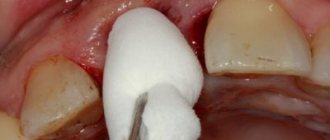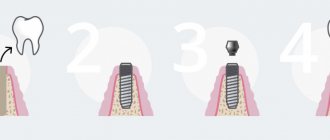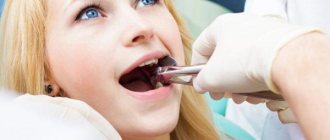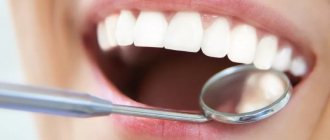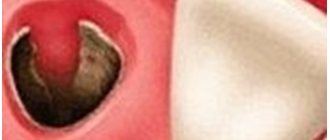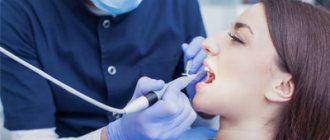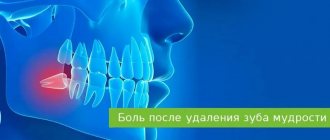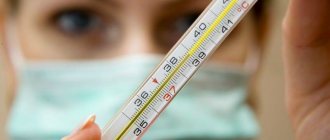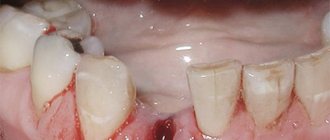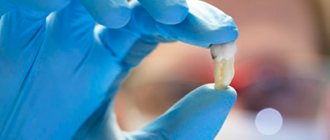Dental procedures always bring discomfort and inconvenience, especially when it comes to tooth extraction. Despite modern techniques and effective pain relief, the procedure is very unpleasant and painful. It does not last long, usually in a dental office, but the rehabilitation period is very important. To speed up wound healing and tissue restoration, you need to follow some rules. Ignorance and failure to follow basic precautions after tooth extraction can lead to complications.
100% Recommendations after tooth extraction
Tooth extraction is, first of all, an operation. Of course, its success depends on the skill of the dentist, but you can speed up the healing process. Follow the doctor’s advice strictly, and very soon you won’t even remember that you visited the dentist’s office. In case you forgot the doctor’s words, here are all the basic recommendations after tooth extraction from the dentists of the ART-Dent clinic.
How is the affected tooth removed?
The procedure itself should only be performed by an experienced surgeon and only when other treatment methods can no longer help. There are a number of reasons that can trigger the removal of an affected tooth:
- if the crown of the tooth is completely destroyed;
- when the patient is indicated for prosthetics;
- if complications arise during the eruption of a wisdom tooth;
- if filling requires perforation of the root canal.
A tooth can be removed for many reasons
Important ! There are cases when there is every reason to remove a tooth, but the patient has contraindications to this. In such cases, most often the intervention is carried out within the walls of a hospital with subsequent monitoring of the patient’s condition.
There are a number of main contraindications to surgical tooth extraction. These include:
- previous heart attacks;
- high blood pressure;
- arrhythmia;
- blood diseases;
- mental problems or neurological diseases.
There is a certain scheme for tooth extraction
If no contraindications have been identified in a patient who needs surgical removal of the affected tooth, then he is referred to the procedure itself, which should be carried out according to the following scheme.
| Stage | Description |
| Visit doctor | Before performing the procedure, the doctor must find out whether the patient has allergic reactions to any anesthetics, cardiovascular pathologies, or whether the patient suffers from hypertension. |
| Anesthesia | After all the necessary information has been obtained, the patient is sent for anesthesia. A fairly large number of different means are currently used to remove teeth. Their duration of action is from forty minutes to three hours. |
| Preparation | Next comes preparation for the intervention itself: in order not to injure the gum during manipulation, it first peels off from the tooth bone by at least five millimeters. This procedure is carried out using a special tool. The surgeon places special forceps on the tooth, and then begins to swing the tooth itself with them in order to destroy the ligaments attached to the jaw bone. |
| Removal | The affected tooth itself is pulled out, that is, extraction. After the affected tooth has been removed, the resulting hole must be thoroughly examined. This is necessary so as not to leave tooth fragments or a cyst in the wound cavity. If the extraction of the affected tooth took place in the presence of flux, then after its removal the gums are cut in the right place and the pus is released. After this manipulation, a drainage is inserted into the wound cavity. |
| Treatment | After the procedure is completed, you need to treat the wound itself. If pus is found at the site of the lesion, then in this case the hole must be washed with an antiseptic solution, and then an anti-inflammatory agent should be placed in the wound. If the hole itself is too large after extracting the tooth, then a suture is necessary. |
| Consultation | After the procedure has been completely completed, before discharge, the doctor must instruct the patient in detail on how to care for the hole during the healing period, and also prescribe any medications if necessary. |
After the tooth is removed and before the patient goes home, the doctor inserts a special medicine into the tooth socket. It is necessary to protect the wound from various influences, as well as for faster and more proper healing. Some patients complain that the turunda with the medicine interferes greatly, but this will have to be endured.
Important ! If you remove the turunda ahead of time, serious complications may develop, which will have to be dealt with not only by the dentist, but also by other doctors.
A special medicine is placed in the hole
The doctor prescribes exactly the medicine that is safe for every person. True, it does not have the most pleasant taste, but a person will have to ignore this factor if he wants the wound to heal as quickly as possible.
There are exceptional cases when it is simply impossible to remove the affected tooth according to the scheme above. The reason for this may be the following factors:
- How long does it take for drugs to leave the body?
- if the tooth root is crooked;
- if the bone tissue of the tooth is too fragile;
- if the crown of the affected tooth is already completely destroyed;
- if the figure eight is in a position of incomplete eruption or in a horizontal position.
If a patient who needs tooth extraction has any of these characteristics, then the intervention is performed in a different way. First, the gum is cut and peeled away from the bone. After this, the specialist drills out the desired area using a drill, which creates access to the root of the required tooth.
Important ! In some cases, the partitions between the roots of the tooth are sawed, after which each root is removed one by one.
In some cases, the tooth is removed differently
After such procedures, healing is more difficult and longer. Such an intervention may cause the patient to develop stomatitis. In many cases of such intervention, a secondary infection is attached to the affected area.
However, no matter which tooth is removed, medicine must be placed in the hole. This procedure is required.
What to do with pain
The main fear before tooth extraction is pain. In fact, the operation is painless, because... takes place under anesthesia, which will remain in effect for another two hours after the procedure. Then the pain will begin to increase. Any painkiller already familiar to you or prescribed by a doctor will help eliminate them.
Most often, doctors advise Ketanov, Ketorol or the most common Nurofen. Mild discomfort continues for a couple of days.
With proper tooth extraction, the pain should not intensify, but if this happens, you should definitely consult a doctor.
About the medicine
The medicine that is placed in the hole can be applied to a piece of gauze, which is subsequently inserted into the hole. In this case, after a certain amount of time indicated by the doctor, it needs to be taken out. This can be done either independently or during your next visit to the dentist. If this is not done in time, the process of putrefaction may begin, which will greatly complicate the situation. It is also not recommended to take out the gauze ahead of time, since food particles can get into the hole and the tongue can touch it, which will interrupt the healing process and also cause complications.
A hemostatic sponge with medication can be installed in the hole.
There is another way to install the medicine - in a hemostatic sponge. It already contains a medicine that helps disinfect the socket cavity and helps stop bleeding. You cannot take this sponge out - it will dissolve on its own. Most often this happens within 1-2 days, but in some cases the sponge may remain in the hole for 5-6 days. There is no need to be afraid of this. As a last resort, you can consult a doctor who will examine the wound and determine whether healing is proceeding normally.
Often the medicine in the sponge is very bitter, and this causes severe discomfort to the person. Unfortunately, nothing can be done about this, since getting rid of the sponge ahead of time is strictly contraindicated. To eliminate bitterness, you can drink sweet tea or juice.
- Why do my gums hurt after tooth extraction?
Remember ! No circumstances can influence the ability to remove the medicine from the hole ahead of time. After 3-4 days, the surface of the hole will heal, and you will no longer have to experience discomfort.
You cannot take out gauze or sponge with medicine on your own - this can cause complications.
People often wonder what kind of medicine is used for these purposes. Sometimes the gauze that is placed in the hole is treated with iodine - this will both disinfect the wound and prevent bleeding. The hemostatic sponge is already treated with a special substance consisting of boric acid, collagen and nitrofural, which helps stop the bleeding and protect the hole from various influences. But most often dentists use Alvozhil.
"Alvogil"
No other means are used for inserting into the hole.
How to avoid bleeding
Immediately after surgery, the dentist will place a gauze pad in the hole to stop the bleeding. You need to immediately clench your jaw tightly and hold the tampon for at least 20 minutes.
If you have high blood pressure or blood clotting problems, you may need to keep the tampon in place for 40 minutes or even an hour.
During this time, a blood clot forms in the hole. It plays a very important role - it protects the wound from bacteria, food debris, and dental plaque, because... their entry into an empty socket can lead to inflammation and infection.
Complications after surgery
Mild inflammation and swelling of soft tissues is a normal reaction of the body to the procedure. Swelling goes away in 1-3 days along with pain. If symptoms remain for 3 or more days after tooth extraction, this indicates the development of pathological processes:
- alveolitis or osteomyelitis;
- inflammation at the site of sutures;
- damage to a neighboring tooth;
- damage to the maxillary sinus or alveolar process;
- neuritis;
- postoperative cyst;
- paresthesia or periostitis.
For some people with high blood pressure, complications may include a hematoma in the neck.
Acute inflammation is indicated by the presence of pus and flux. In this case, you should immediately seek help from a dentist, who will perform an operation and remove dead tissue.
How to rinse your mouth
Recommendations after molar tooth extraction always include a ban on rinsing on the first day after surgery - this procedure can remove a blood clot from the socket.
In the following days, rinsing with herbs - a decoction of oak bark, chamomile, calendula - will be useful to relieve inflammation and speed up the healing process. Among the medications you can use miramistin, furatsilin or chlorhexidine. A water-salt solution is also suitable.
The rinsing technique is simple: take the solution or decoction into your mouth, hold it for 20 minutes and carefully spit it out. No sudden movements.
6. Medications after removal.
After the procedure, the doctor prescribes a number of medications to take. Under no circumstances should you take any medications on your own, without consulting a doctor.
Painkillers should be taken in case of pain, at intervals and in the amount recommended by the doctor. Each case is individual; it happens that the patient does without taking painkillers.
Antibiotics. In some cases, after removal, antibiotics are prescribed for 5-7 days. As a rule, these are situations when the doctor removes a tooth in the stage of inflammation, complex extraction or removal of several units of teeth. Only a specialist surgeon decides whether to take antibiotics or not.
Antihistamines. Reduces the likelihood of swelling.
Antiseptics. Used as a rinse. BUT, remembering that rinsing movements are prohibited in the first days. A small amount of solution is taken into the mouth and simply held in the mouth, then calmly spit out. Such baths must be done if the tooth was removed during the inflammation phase, if the flux was exposed, if there are teeth affected by caries in the oral cavity.
What and when to eat
You can't eat or drink for the first three hours. First, during anesthesia, you can bite your cheek or tongue. Secondly, the blood clot must harden in the hole.
After this, you can eat, but you should avoid hot, cold, spicy and rough foods. You should absolutely not drink hot drinks: they will not only increase blood flow, but can also dissolve the protective clot.
If the removal was difficult, the dentist will recommend a diet of soft and liquid foods for a day or two.
Chew food with the teeth located on the non-operated side.
A rehabilitologist told how to recover from COVID-19
Leonid Dyakov, a specialist at the Department of Medical Rehabilitation, Sports Medicine and Exercise Therapy at the Rostov State Medical University, a member of the European Association of Outpatient Rehabilitation Physicians, answered RG’s questions.
— When can a person be considered fully recovered?
Leonid Dyakov: After all the symptoms disappeared, normal test results were obtained. And when a person feels that he can return to normal life, fulfill his duties, and nothing limits him: there is no shortness of breath, no palpitations, or other suspicious phenomena.
If something bothers you after being discharged from the hospital or leaving sick leave, you need to consult a doctor. Everyone suffers in their own way. The health consequences can be different, so everyone should have their own set of examinations.
— What tests need to be taken, which organs should be checked?
Leonid Dyakov: It would be good to do a CT scan of the lungs within a year after discharge. There is no need to be afraid of radiation doses - modern devices are practically harmless. Only with computed tomography can complications be detected. It will help identify areas of the lungs that are affected. And then compensation mechanisms can be launched in a timely manner. But it’s still better for the doctor to decide this in the specific situation that the patient has. If nothing bothers you, there is no pain, there is no shortness of breath, there is no point in doing any research.
Also, after discharge, I advise you to do an ECG and urine test, a general blood test with detection of the leukocyte formula, and determination of the relative and absolute number of lymphocytes within a year. Conduct an examination for glycoproteins, which are produced in the liver and indicate the degree of inflammation or tissue necrosis. And also - examine blood serum for changes in the concentration of immunoglobulins. They allow you to establish the general immune status of the body and determine what treatment is necessary.
An important indicator of the functioning of the respiratory system - the function of external respiration - can be studied using spirometry. This is a simple manipulation, it is performed by a pulmonologist. And in home practice, you can use a portable pulse oximeter. A miniature device will determine the oxygen saturation of the blood. This indicator should also be monitored throughout the year; it should become a habit, like measuring blood pressure with a tonometer.
— What to do if test results are abnormal?
Leonid Dyakov: In case of deviations from the norm - in tests, CT scans, ultrasound - it is better to discuss this with a specialist. Some deviations are acceptable. It is better to recover under the supervision of a therapist.
— People who have been seriously ill with COVID-19 talk about damage to part of the lung, sometimes up to 40 percent. Can the organ be restored and what needs to be done for this?
Leonid Dyakov: In fact, the lung tissue is well compensated. Even the alveoli are restored. Nature has insured a person in this case; it is not for nothing that the lungs are a paired organ, and a person can live without problems with one lung. Of course, everything is very individual and depends on many factors. The lower the percentage of damage, the better and faster the process goes.
But unfortunately, the lungs are not the only organ that suffers from the virus. One of the most common complications of Covid is myocarditis, inflammation of the heart muscle. It is especially dangerous because it may not develop immediately, but after a while. The virus attacks the endothelium, the inner “lining” of blood vessels, and the vessels run throughout the body. One of the most vulnerable places is the myocardium. For the same reason, the kidneys may suffer. After all, they are a tangle of blood vessels. If the virus affects them, then problems are inevitable.
— How long can the recovery period last?
Leonid Dyakov: Rehabilitation will take quite a long period, especially if you had to resort to mechanical ventilation. The old Soviet recovery system allowed three months for the treatment of ordinary pneumonia, and this period necessarily included sanatorium treatment.
This was an extremely important stage. Previously, even before the revolution, patients went “to the water” and breathe the air. In some places, balneological technologies and climatic therapy are still preserved. Dry sea, pine air is healing. This is Crimea, Gelendzhik.
Usually, after seasonal acute respiratory viral infections, the body recovers in one to two weeks, depending on the severity of the disease. Recovery from coronavirus infection takes on average from one to 2.5 months. The complications that arise and the general deterioration in well-being after COVID-19 are called post-Covid syndrome.
— They say coronavirus is a call to reconsider your life. What needs to change in life?
Leonid Dyakov: Of course, any illness is a reason to stop, look around, and analyze your life. An inactive lifestyle, bad habits and an incorrect psychological attitude lead to illness - this is no secret to anyone.
— How to eat properly after an illness? Do I need to take vitamins, which ones and for how long?
Leonid Dyakov: Three or four times a day would be good. And that the menu includes fresh fruits and vegetables. At least a couple of times a week protein - fish, meat dishes. In severe cases of the disease, a significant loss of protein proteins occurs in the body. Very important during the recovery period are the fats that make up the surfactant, a substance that prevents the pulmonary alveoli from sticking together. These should be fats of natural origin (not palm oil) - butter, sunflower, olive oil.
And, of course, vitamins. A person receives large doses already during the course of treatment. But even after discharge, it is advisable to take multivitamins with microelements for three months after clinical recovery.
— Vitamins are the same as for illness: vitamin C in a horse dose of 1000 mg? Vitamin D?
Leonid Dyakov: No, rather prophylactic doses in ready-made pills. There are some good complexes. All this should be discussed with a doctor who knows the patient.
— Is it necessary to seek a course in a rehabilitation program or is it better to go to the forest, to the dacha or to the Mineral Waters and just take a walk there?
Leonid Dyakov: With our high pace of life and stress, a couple of times a year you need to get away from your usual life, leave the city to breathe fresh air by the river, in the forest, in the mountains or by the sea.
Most survivors do not need a rehabilitation program. Only if there are severe complications. This is discussed with the attending physician, a therapist at the clinic, who will help arrange sanatorium-resort treatment.
— What exercises will help those recovering?
Leonid Dyakov: Exercises are also selected individually. A universal exercise that I recommend is walking.
If you didn’t walk before you got sick, and then suddenly started, you need to monitor your pulse and exercise.
It is unusual for city dwellers to walk a lot, but for recovery it is necessary. Relatives can join you and organize a two- to three-hour walk for therapeutic purposes. You need to approach this strictly individually; for some it’s just slow walking. Swimming has a good rehabilitative effect: here, in addition to the benefits of breathing exercises, the muscles that support the lungs are also included in the recovery process. But swimming should be swimming, not getting wet in a pool.
— How to restore psycho-emotional balance?
Leonid Dyakov: The most painful topic is psycho-emotional balance. Every patient who has been in a hospital needs help. Some had relatives who were seriously ill, others saw people nearby dying in Covid hospitals - the patient experienced enormous stress. The help of a psychologist may be needed to determine whether the patient needs more serious help. For example, our center deals not only with physical, but also with psychological rehabilitation.
— What can’t be done after coronavirus?
Leonid Dyakov: Drink alcohol, smoke, take on excessive physical activity. This not only prevents the strengthening of the immune system, but also leads to a worsening of the condition. You cannot overcool, neglect proper nutrition, or lack sleep.
Strengthened cardio exercises are contraindicated. And you cannot refuse rehabilitation in case of severe consequences of the disease, accompanied by shortness of breath.
You can cool it, but you can’t heat it up.
A cold compress will help reduce swelling and bleeding. But it should be used only on the recommendation of a doctor. Cold is applied through a thin cloth and held for no more than 25 minutes, otherwise hypothermia will occur, which can lead to unpleasant consequences.
Overheating can lead to inflammation or secondary bleeding. Therefore, for some time you need to forget about a hot bath, solarium.
Is it possible to brush your teeth
Oral hygiene must be observed. But there are a few points worth paying attention to:
- Do not touch the hole with the brush,
- reduce the amount of paste,
- rinse your mouth very carefully and slowly.
And one more thing: never take medications without a doctor’s prescription. In simple cases, medications will not be needed, at most a light pain reliever. In difficult cases, the dentist will prescribe an antibiotic and an antihistamine.
Using these recommendations, you will survive tooth extraction easily and unnoticed. If you have any other questions, call ART Dent dentistry, our specialists will definitely help you.
Auxiliary medications for tooth extraction
If, after the tooth is removed, any complications begin at the intervention site, then modern pharmaceuticals can cope with them. With the help of various medications, the patient can not only eliminate the resulting secondary complications, but also strengthen his immunity as a whole. Quite often, specialists, to ensure against possible complications, in particular, various inflammations and suppurations, prescribe antibacterial drugs in the postoperative period. At the same time, the patient also needs to strengthen the immune system, which will help the wound heal faster. To do this, doctors prescribe vitamin complexes to the patient. Thus, in addition to the medicine placed in the hole and affecting its healing, the patient is recommended to take other drugs to speed up the process.
Your doctor may recommend taking medications to strengthen your immune system.
If during the procedure the patient was identified with any peculiarities or complications and tooth extraction was not without additional trauma, then a number of medications are prescribed in the postoperative period, since in this case there are additional risks of complications. The main thing is that the patient treats the postoperative period responsibly and does not neglect the doctor’s advice and the medications prescribed to him.
Important ! According to statistics, every third patient who has had a tooth removed needs to take antibiotics.
